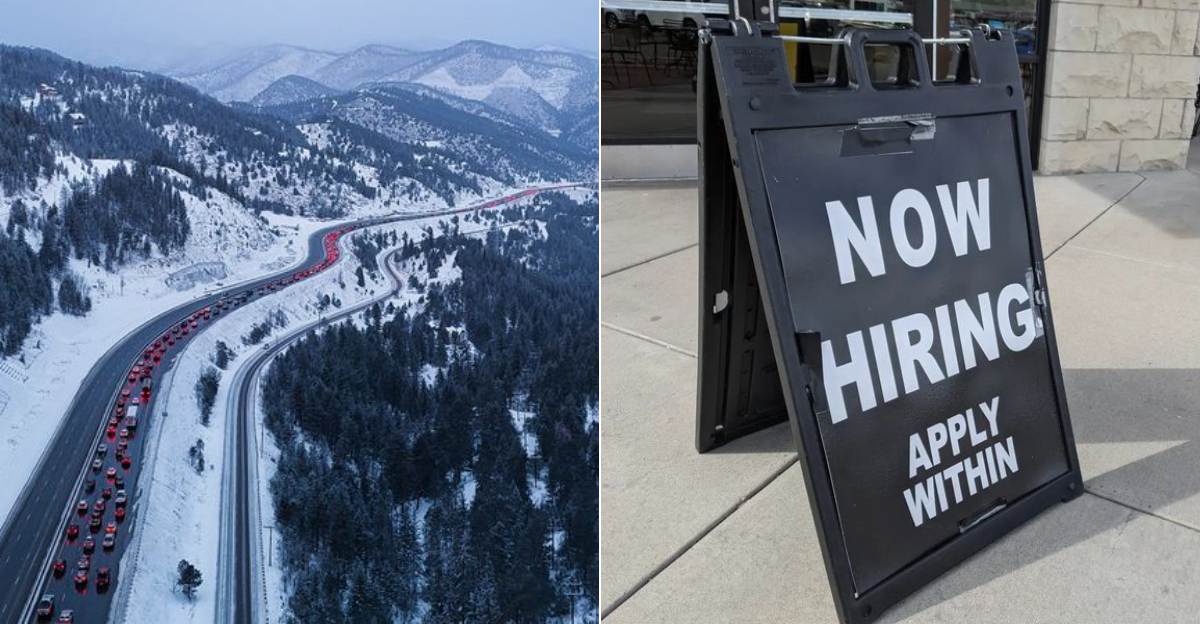
Colorado’s picturesque mountain towns once offered peaceful getaways from city life. Now, many locals feel their communities are bursting at the seams. The charm that made these places special is fading as tourists and new residents flood in year after year. Let’s explore why many Colorado small towns now feel more like crowded tourist traps than welcoming communities.
1. Skyrocketing Housing Costs Push Out Locals
The median home price in many Colorado mountain towns has more than doubled since 2012, creating a housing crisis of epic proportions. Long-time residents find themselves priced out of communities they’ve called home for decades.
Teachers, firefighters, and service workers simply can’t afford to live where they work anymore. The result? A town filled with vacant vacation homes for much of the year while the workforce commutes hours from affordable areas.
This housing imbalance breeds resentment as communities lose their core residents who once created the welcoming atmosphere these towns were known for.
2. Tourist Tsunamis Overwhelm Small Infrastructure
Main streets designed for a few thousand residents now accommodate millions of annual visitors. During peak seasons, locals can’t find parking at their favorite restaurants or even grocery stores.
Water systems, sewage treatment, and trash collection struggle under the seasonal population surges. The infrastructure simply wasn’t built for this level of use.
What was once a quick errand becomes a frustrating ordeal as residents navigate crowded streets and packed establishments. The constant feeling of being unable to access your own town breeds a natural defensiveness among locals.
3. The Vanishing Workforce Crisis
“Help Wanted” signs hang in nearly every shop window across Colorado’s resort towns. With nowhere affordable to live, essential workers have disappeared, leaving businesses chronically understaffed.
Restaurants close several days a week despite tourist demand. Hotels struggle to maintain basic services with skeleton crews. Even emergency services face dangerous staffing shortages.
The few workers who remain are stretched thin and often living in substandard conditions. This creates a perfect storm where overworked staff provide diminished service to demanding tourists, making the entire town feel less welcoming to everyone.
4. Nature Loved to Death
Once-pristine trails now resemble highways of hikers. Popular spots like Hanging Lake and Maroon Bells have been forced to implement strict reservation systems due to environmental damage from overuse.
Trash litters scenic areas despite cleanup efforts. Wildlife patterns have changed as animals retreat from human encroachment, and vegetation along popular paths has been trampled beyond recovery.
Locals who moved to these areas for natural beauty now find themselves competing for access to their own backyards. The degradation of the very features that made these towns special creates a profound sense of loss among residents.
5. Cultural Identity Washed Away
Mining towns with rich histories have transformed into generic tourist destinations. Historic buildings now house high-end boutiques selling mass-produced “mountain-themed” trinkets instead of locally-significant goods.
Traditional community events have become commercialized attractions. Many new businesses cater exclusively to visitors rather than serving local needs, creating a theme-park atmosphere.
Longtime residents watch helplessly as their authentic cultural identity dissolves into a marketable caricature. This loss of genuine character makes many feel like strangers in their own communities, creating an underlying current of resentment.
6. Traffic Gridlock in Mountain Corridors
Weekend traffic on I-70 has become legendary for all the wrong reasons. What should be a 1-hour mountain drive from Denver regularly stretches to 4+ hours during peak times, trapping locals and visitors alike in endless lines of bumper-to-bumper frustration.
Mountain passes designed for light use now handle interstate-level traffic volumes. Even local roads within small towns experience gridlock during busy seasons.
For residents, this means planning life around traffic patterns and feeling trapped in their own communities. The constant influx creates a psychological barrier where locals begin to view outsiders as invaders rather than welcome visitors.
7. Year-Round Tourism Eliminates Quiet Seasons
Mountain towns once enjoyed predictable off-seasons when locals could reclaim their communities. Now, aggressive marketing campaigns promote year-round tourism, eliminating these crucial recovery periods.
Fall used to be quiet after summer visitors left. Now it’s promoted for leaf-peeping. Spring mud season was once locals-only time. Now it’s marketed for discounted adventures.
Without these breathing spaces, communities never get to reset or reconnect. The constant presence of outsiders creates a siege mentality among residents who never get to experience their town as just their town, leading to a perpetual sense of invasion.
8. Wealthy Second-Homeowners Create Ghost Towns
Walking through certain Colorado mountain neighborhoods feels eerily quiet despite every home being owned. That’s because up to 60% of houses in some communities are second homes or investment properties, sitting empty most of the year.
These ghost neighborhoods kill community spirit. No children play outside, no neighbors chat across fences, and no one attends town meetings to address local issues.
The remaining full-time residents feel isolated in these hollow communities. When the occasional homeowners do arrive, they often lack connection to local concerns, creating a disconnect between those who live in town and those who simply own it.
Dear Reader: This page may contain affiliate links which may earn a commission if you click through and make a purchase. Our independent journalism is not influenced by any advertiser or commercial initiative unless it is clearly marked as sponsored content. As travel products change, please be sure to reconfirm all details and stay up to date with current events to ensure a safe and successful trip.